FARGO Season Three Review
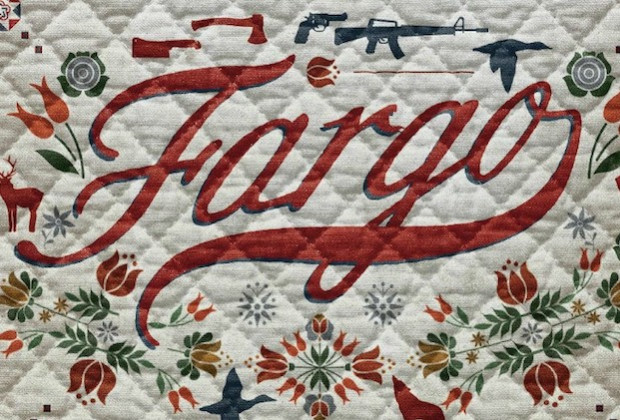
It’s no secret that Noah Hawley’s FARGO quickly skyrocketed to one of my favorite current shows on television. I have always been partial to mini-series for their insular capacity, and FARGO elegantly combines those perks with the large scale dramatics of long-format shows. It’s an anthology loosely held together by anecdotal connections, tidbits that reward consistent viewers for their commitment to the show, but never become essential to enjoying a season’s worth of content. With that said, I would urge you to drop whatever you’re doing and watch FARGO season two if you have yet to do so. If there is a single 10-episode stretch that perfectly encapsulates the golden age of television, it is this star-studded domestic crime caper, a tonal nod to the film that inspired it, but a beast that is entirely its own. Given this high praise, you might be wondering what my opinion on the third, and latest, season of FARGO is. In short, it was satisfactory. It is 10 episodes well worth consuming if you’re already an avid television viewer, but it’s not a season that will convert any naysayers.
After the massive ensemble of season two, Hawley significantly decreased the scope of his third year with the show. Focussing on a fraternal conflict involving a family heirloom (in true Coen Brothers fashion, it’s a goddamn stamp), Ewan McGregor plays not one, but two characters: a parking lot entrepreneur, Emmit Stussy, and his deadbeat parole officer brother, Ray. Both men are selfish and greedy. Both are unwilling to compromise. Both have their own set of financial tribulations. Enter V.M. Varga, played by David Thewlis: a ruthlessly shady businessman that takes over Emmit Stussy’s business, transforming it into a multi-million dollar corporate bleed out. Mary Elizabeth Winstead, Carrie Coon, Shea Wigham, and Michael Stuhlbarg round out the ensemble, each tracking the case of Varga vs. Stussy in a different manner.
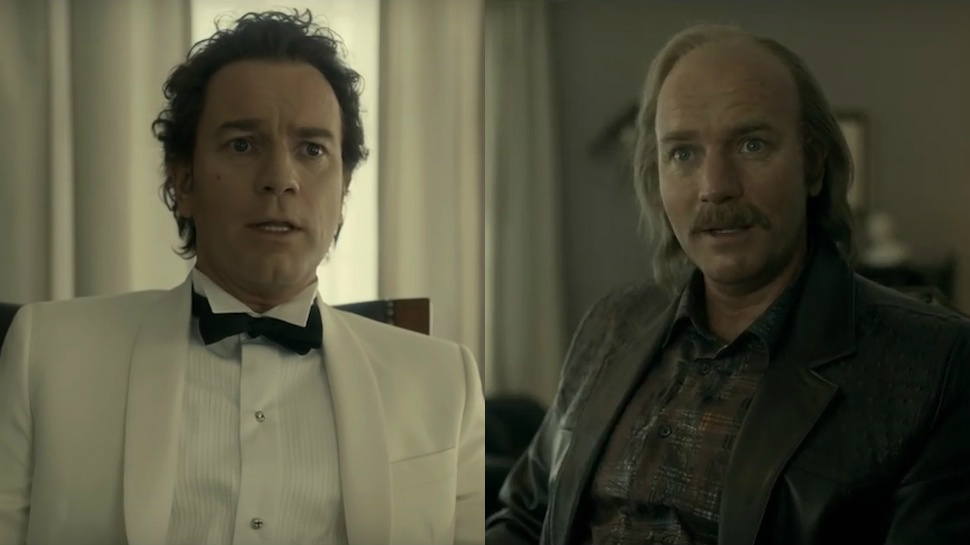
It’s cool because it’s like the same guy playing two different guys at the same time!
Carrie Coon is quickly introduced as the shows quasi-surrogate protagonist, an individual just as clueless about the goings on as the audience. As we begin to learn about plot essentials faster than her, the series transitions between dramatic ironies and games of catch up. It’s an elegantly constructed narrative, but not anything we haven’t seen in a police procedural before. Perhaps season three’s greatest setback is that Carrie Coon, despite her proficiency as an actress, doesn’t have as dynamic a character as Patrick Wilson did in season two. Where Hawley gave Wilson a smorgasbord of personal and professional dilemmas—namely dealing with his cancer-stricken wife, all while trying to solve a dangerous case of mob in-fighting—Coon is given no real internal conflict.
Instead, she juggles between two external forces: that of both Stussy’s unwillingness to cooperate in helping her solve a spate of murders, and the challenge of being taken seriously as a woman of the law in her workplace (something that’s made doubly complicated when the merger of two police stations results in a new police chief usurping her position). We get a brief insight into her family life: her husband has left her after coming out as gay, and her step-father gets wrapped up in the killings. The former hardly affects the investigations and the latter, though a good catalyst for her not being taken seriously by her superiors, becomes an afterthought en lieu a handful of episodes. She is neither too clueless nor fast enough on the draw for the show to make any declarative statement about why she exists in the narrative at all. It’s a clear nod to the Coen Brothers’ tradition of passive characters happening upon pivotal events, but it doesn’t work nearly as effectively as it did in the show’s first or second season.
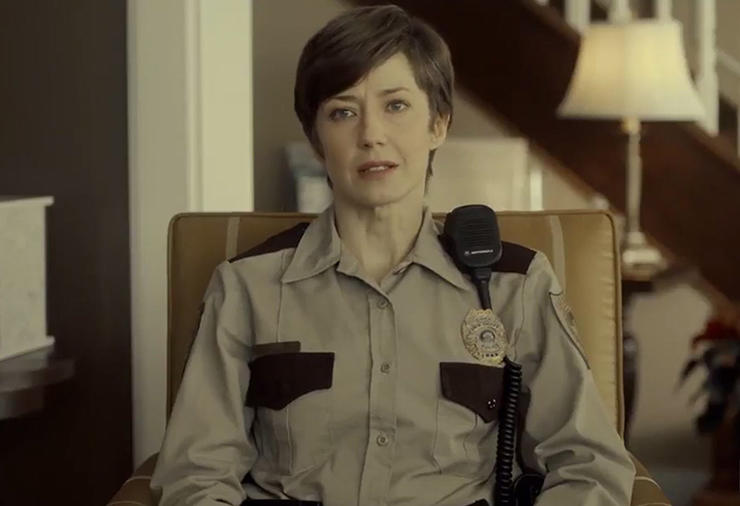
MFW I’m tasked to save the day in two TV shows in one year and still get criticized for not being good enough
This complaint applies across the board for FARGO’s third season. As always, it’s smart, intricate, and methodically crafted, but a far cry from the high bar set by its predecessors. But perhaps that’s expecting too much from a show that is well ahead of the competition, regardless. As a mystery, it’s refreshing to see that Hawley is trying to challenge himself and his audience. This isn’t the murder-coverup of season one, nor is is the vicious, GODFATHER-esque mafia tale of season two. It is a tale of legal crime, a corporate scandal built upon tax evasion and offshore bank accounts. It sounds a lot more boring than its ancestors, and it admittedly can be (there is a lot less gunplay and a lot more office talk than in past seasons), but what season three lacks in viscera it more than makes up for in tense rhetoric, something that really begins to shine in the season’s final four episodes, where Winstead takes center stage and really delivers as the show’s most valuable player. But it’s all too little too late.
FARGO has always been among the most cinematic shows on television. It dares to challenge its audience with some gorgeous musical cues, inventive parallel narratives, gorgeous compositions, and a wonderful understanding of the medium of televised storytelling. Formally, FARGO’s third season is oddly regressive. It doesn’t have the momentum of its prior season, nor does it really know what to do with its biggest star. Usually I can forgive a series for taking three to five episodes to find its footing (BREAKING BAD needed this, hell, even THE WIRE did), but when dealing with a season that fundamentally acts as a mini-series, it’s difficult to accept that any episode is wasted. This crisis becomes most apparent in the season’s third episode, in which Carrie Coon takes a trip to Los Angeles. It’s a welcome detour from the show’s traditional milieu, using ‘70s flashbacks that stylistically mirror the aesthetic of season two, all building up to one of the season’s highlight episodes. But in the end it doesn’t really say anything, or at least not enough. This seems to be the overall consensus I had after each episode of FARGO’s third season.
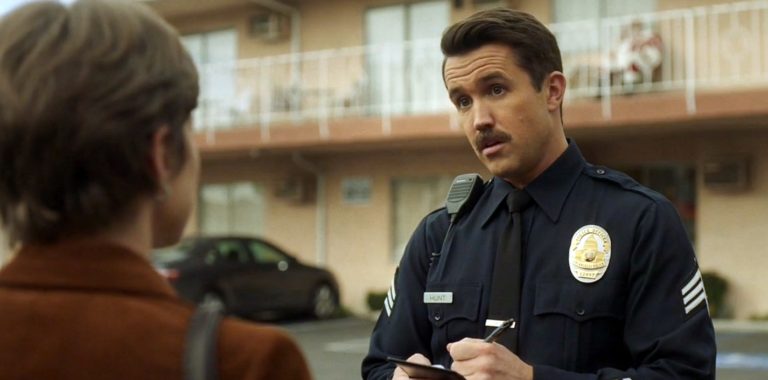
It’s actually always sunny in Los Angeles!
Hawley really knows how to push a narrative forward. He has the writer’s acumen of somebody who understands where to trim the fat and how to keep his show on a steady roll (something that even television titan GAME OF THRONES struggles with). But what he’s lost in his third season is an actual thesis statement. I’m not really sure what FARGO’s third season is about. It’s definitely about women in a world run by men, and it’s somewhat of a tale of brotherhood, but the two feel so diametrically opposed in thematics that they maybe should have been two separate shows. I love the performances in FARGO, and I love its ability to channel levity. As a die-hard Coen brothers fan I can even accept that it does succumb to the stigma of FARGO fan fiction at times, because it’s so unabashedly charming. I can’t say there’s anything inherently wrong with FARGO season three, because it’s still very good television, and before I expect Hawley to deliver the quality of content he created with season two, I should probably be thankful that something so amazing exists to begin with.
Verdict: Recommend

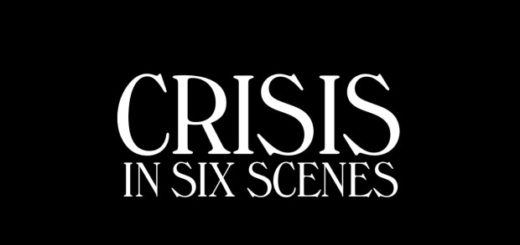
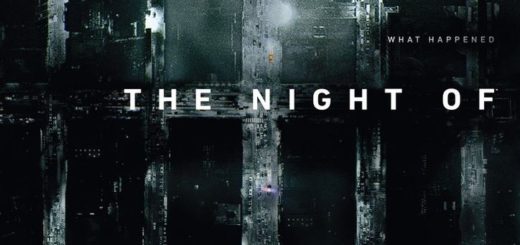

1 Response
[…] a bizarrely positive relationship with the Crossfader television staff considering our coverage of FARGO, ATLANTA, IT’S ALWAYS SUNNY, BASKETS, BETTER THINGS, and LEGION, in addition to the fact it hosts […]